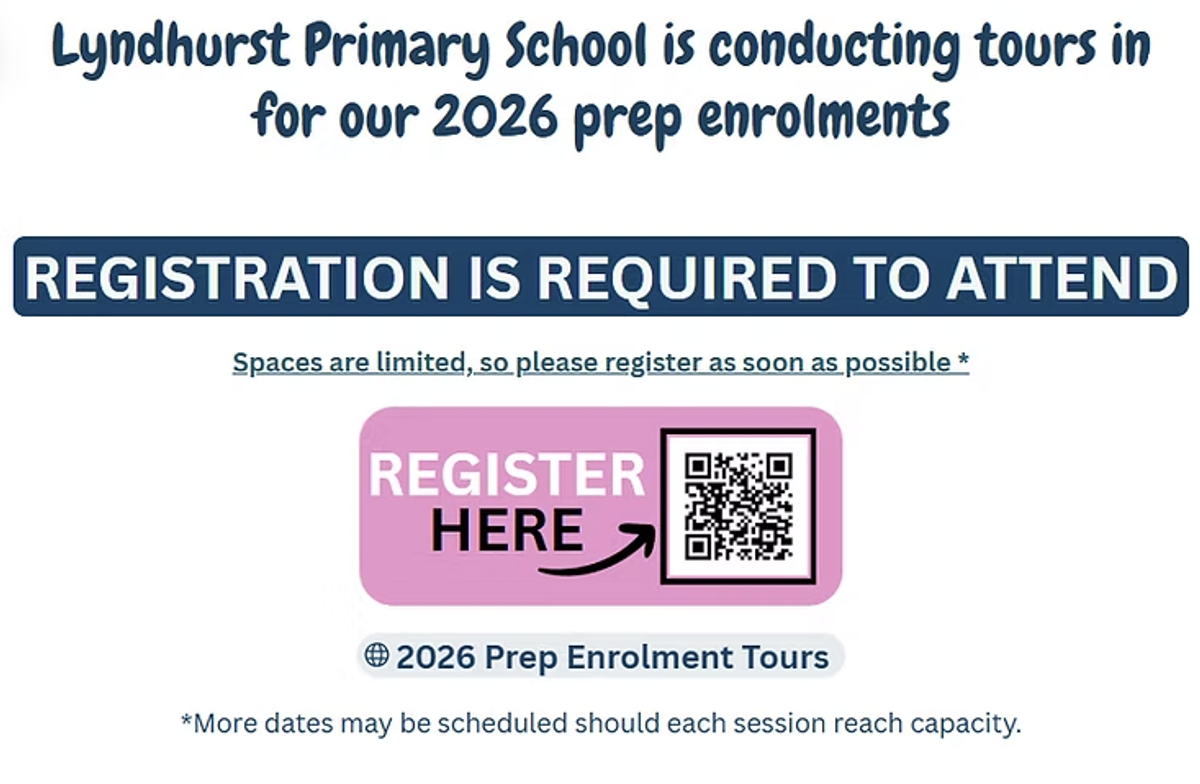2026 Prep Tours & Enrolments

Enrolment Timeline:
We are now accepting enrolments for prep in 2026:
- Download the Foundation (Prep) enrolment information pack from Enrolling in Foundation (Prep)
- Visit the VicStudents Website to create an account and complete the online application form. Submit an enrolment application for Foundation (Prep) by Friday 25 July 2025.
- You will be notified of the outcome of your application between Monday 28 July and Friday 8 August 2025. If you receive an enrolment offer, you should respond to the offer on VicStudents* by Friday 22 August 2025.
- Enrolment applications submitted after Friday 25 July 2025 will be processed by our school as they are received, in accordance with the Department’s Placement Policy.
Enrolment Tours:
If you'd like to do a tour of Lyndhurst Primary, please register by scanning the QR code below to see which dates suit you. We have dates available in term 2 and term 3.

